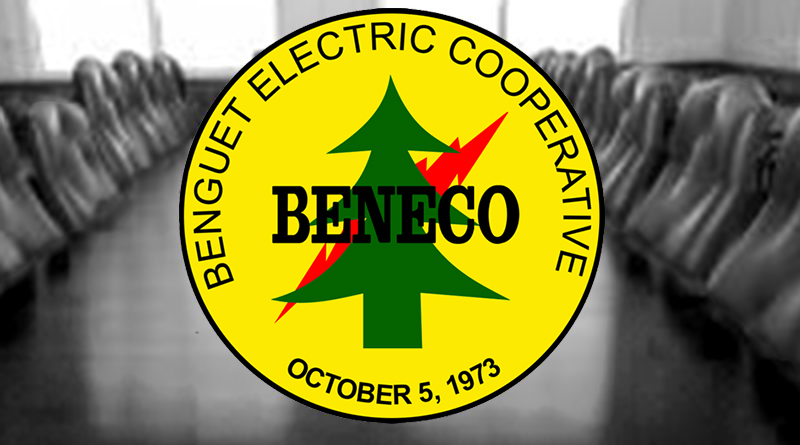BAGUIO CITY- the 2nd National Summit on Gender and Development (GAD) in Co-ops with the theme “Transformative, Sustainable Growth for Women and Men and Co-ops.” Focused on how to magnify the practice of gender and equality in cooperatives.
The said summit was attended by delegates from different regions around the country.
The objectives of the 2nd National Summit for women and men delegates of co-ops in the Philippines to be updated on the experiences of co-ops, national government agencies (NGAs), local government units (LGUs) and social enterprise on mainstreaming GAD in co-ops. Assess how GAD is being integrated in the co-op sector and also the progress on the application of the “Declaration and Call for Action” of the “National Summit on GAD in Co-ops” where it is the first summit held on 2014 in Subic. Further understand the importance of GAD as a component of the social impact of co-ops. Formulate firmer action points to mainstream and sustain mainstreaming GAD in co-ops and thereby attain gender equality that helps co-ops gain economic and social growth.
The Summit was organized by the Gender Equality Resource Center (GERC) and Cooperative Development Authority (CDA) where Ms. Salome Ganibe is the GERC President.
GERC is a resource center and advocacy body promoting gender equality for development in and through co-operatives.
CDA is the lead Philippine government agency tasked for co-op development. As a government body, it is mandated to practice GAD tenents and furthermore, it actually believes that GE is good for co-ops growth.
On the other hand, GAD is the development approach that acknowledges the contribution of women inside and outside the household. It recognizes women as agents of change rather than as passive recipients of development assistance. It also recognizes that gender issues concern both women and men.
The objective of GAD is gender equality wherein women and men have the same value, equal rights, commitments, visibility, empowerment and participation in all spheres of public and private life. GE requires the acceptance and appreciation of the complementary of women and men and their diverse roles in society, and in co-operatives where both women and men should take active roles.
Two reasons to pursue GE in co-ops are the promotion that expresses the co-ops’ adherence to the universal values of equality, equity, solidarity, social responsibility and caring for others as stated in the “Statement on the Co-operative Identity (SCI).” The SCI, followed by co-ops worldwide, was adopted at the 1995 General Assembly of the International Co-operative Alliance (ICA). This means that the achievement of GE is in the development agenda of co-operatives. And the promotion of GE is considered a strategy or a means that the achievement of GE is in the development agenda of co-operatives.
Social Audit of Cooperatives of Republic Act No. 9520 or the “Philippine Cooperative Code of 2008”, includes the contribution of a co-op to the promotion of gender fair culture and practices as among the indicators for assessing a co-op’s contribution to the uplift of its members’ economic and social needs and those of the communities where the co-op operates.
The Philippine Cooperatives has a total number of registered co-ops of 24,652 as of December 2014 based from www.cda.gov.ph. And based on 10,762 co-ops data that reported to CDA where a total membership in co-ops 7,675,283, employment generated by co-ops 290,662, total assets of co-ops P248,539,541,100 where in large co-ops with assets above P100M are 395, medium co-ops assets PHP15,000,001 to P100M is 1,410, small co-ops assets P3,000,001 to 15M is 2,762 and micro co-ops assets P3M and below is 6,195. The net surplus of co-ops P16,068,692,222 where 10,165 out of the 10,762 reporting co-ops had net surplus; 597 co-ops had net loss).
Based on the Statement on the Cooperative Identity (SCI) a co-operative is an autonomous association of person united voluntarily to meet their common economic, social and cultural needs and aspirations through a jointly-owned and democratically-controlled enterprise. And the values of co-operatives are based on the values of self-help, self-responsibility, democracy, equality, equity and solidarity.
Additional information from CDA databank, as of December 2015, the total number of registered co-ops is 25,611. Based on 10,425 co-ops that reported data to CDA, the total membership reaches 7,654,316 where female has a 4,139,001 (54%) and male numbered 3,515,315 (46%). Out of 25,611 registered co-ops, there were 7,313 co-ops that provided data on Board composition. The total board members are 53,447 where females are 21,336 (40%) and males are 32,111 (60%). By JOFER ANGEL GARCIA













